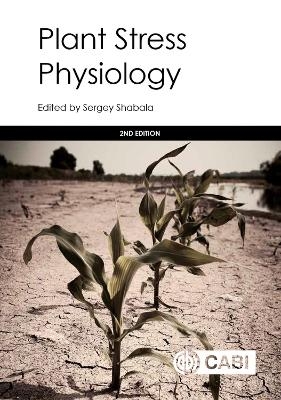
Plant Stress Physiology
CABI Publishing (Verlag)
978-1-78064-729-6 (ISBN)
Completely updated from the successful first edition, this book provides a timely update on the recent progress in our knowledge of all aspects of plant perception, signalling and adaptation to a variety of environmental stresses. It covers in detail areas such as drought, salinity, waterlogging, oxidative stress, pathogens, and extremes of temperature and pH. This second edition: Presents detailed and up-to-date research on plant responses to a wide range of stresses Includes new full-colour figures to help illustrate the principles outlined in the text Is written in a clear and accessible format, with descriptive abstracts for each chapter Written by an international team of experts, this book provides researchers with a better understanding of the major physiological and molecular mechanisms facilitating plant tolerance to adverse environmental factors. This new edition of Plant Stress Physiology is an essential resource for researchers and students of ecology, plant biology, agriculture, agronomy and plant breeding.
S Shabala is a Professor in Plant Physiology at the University of Tasmania, Australia. His major expertise is in stress physiology and membrane transport in plant, bacteria and animal systems. His 26 years of expertise in the field has resulted in ca 120 publications in international peer reviewed journals and over 2,300 citations and h-index of 28. He is routinely reviewing papers for over 50 international journals and acts as a reviewer for major funding bodies in Australia, USA, UK, and a large number of European countries. He is also an Editor/Editorial Board member on four international plant science journals. The Stress Physiology laboratory at the University of Tasmania he currently leads includes 15 members and collaborates with over 40 laboratories in 17 countries. Over the last 10 years he has hosted over 30 international visitors using the unique facilities for non-invasive microelectrode ion flux measurements; the so called MIFE technique he had pioneered in stress physiology research.
CHAPTER 1: Drought Tolerance in Crops: Physiology to Genomics CHAPTER 2: Salinity Stress: Physiological Constraints and Adaptive Mechanisms CHAPTER 3: Reactive Oxygen Species and Their Role in Plant Oxidative Stress CHAPTER 4: Plant Responses to Chilling Temperatures CHAPTER 5: High Temperature Stress in Plants: Consequences and Strategies for Protecting Photosynthetic Machinery CHAPTER 6: Flooding Tolerance in Plants CHAPTER 7: Adaptations to Aluminium Toxicity CHAPTER 8: Plant Stress under Non-optimal Soil pH CHAPTER 9: Desiccation Tolerance CHAPTER 10: UV-B Radiation: from Stressor to Regulatory Signal CHAPTER 11: Frost Tolerance and Avoidance in Plants CHAPTER 12: Heavy Metal Toxicity in Plants CHAPTER 13: Biotic Stress Signalling: Calcium Mediated Pathogen Defence Programs
| Erscheinungsdatum | 25.01.2017 |
|---|---|
| Co-Autor | Lakshmi Praba Manavalan, Henry Nguyen, Rana Munns, Vadim Demidchik |
| Verlagsort | Wallingford |
| Sprache | englisch |
| Maße | 172 x 244 mm |
| Gewicht | 1104 g |
| Themenwelt | Naturwissenschaften ► Biologie ► Botanik |
| Weitere Fachgebiete ► Land- / Forstwirtschaft / Fischerei | |
| ISBN-10 | 1-78064-729-8 / 1780647298 |
| ISBN-13 | 978-1-78064-729-6 / 9781780647296 |
| Zustand | Neuware |
| Haben Sie eine Frage zum Produkt? |
aus dem Bereich


